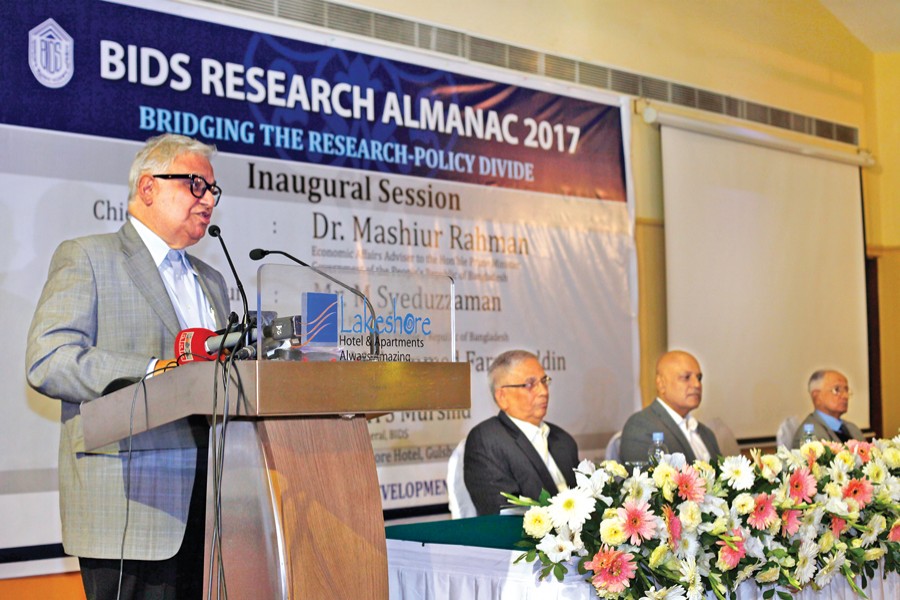Bangladesh's prime bourse, Dhaka Stock Exchange, remained largely inefficient and not an ideal ground for small investors to book short-term returns, researchers said.
Their observations about an unfriendly environment for common investors on the country's main bourse came at a conference arranged in the capital Wednesday by official development-policy-analyst BIDS, with its focus on the financial market.
Experience since the 1980s show that if one invests in DSE only for a longer term, then they will be able to reap some good returns, they said.
But, for those who are small investors looking to get frequent returns this market is not suitable, they said during the two-day meet on BIDS Research Almanac.
Analysing the historic average rate of return and volatility of Dhaka's stock market, the researchers showed that investors in DSE are usually compensated with higher returns for bearing higher levels of risk.
"When it comes to predictability of return, we found that returns do not follow random walk and daily return is predictable to some extent," said Siban Shahana, Research Associate of BIDS.
"Again, when it comes to market efficiency, the diagnostic tests reject the assumption of random walk which implies that DSE as a market is inefficient," she added.
The researchers also found that the unweighted daily rate of return on DSE is about 0.0034 per cent which is equivalent to about 1.25 per cent per annum for the period of 1991 and 2015.
The 2000s was decade of high return (0.04 percent) while the last five years had been the worst (0.06 percent), the bourse postmortem showed.
Another research paper done by Member of the Planning Commission Professor Dr. Shamsul Alam, Kazi Iqbal of BIDS and Paritosh K Roy of ISRT found that increased access to banking services usually leads to higher poverty reduction.
Based on a countrywide mapping of banking services, the researchers found that the presence of banking services in the grassroots areas usually generates increased amount of deposits from the rural population.
"However, it is also notable that such increased grassroots presence of banking services does not necessarily lead to increased amount of credits," Kazi Iqbal of BIDS said about the discrepancy.
In addition, another research work by Monzur Hossain of BIDS and Hussain Samad of the World Bank found that increased penetration of mobile phones can lead to an income boost for the people in off-grid rural areas.
"People use mobile phones for enhancing their income from livestock, poultry and fisheries by using it as channels for the marketing of products while it also helps them eliminate their travel costs and save their time," Monzur Hossain of BIDS told the conference.


